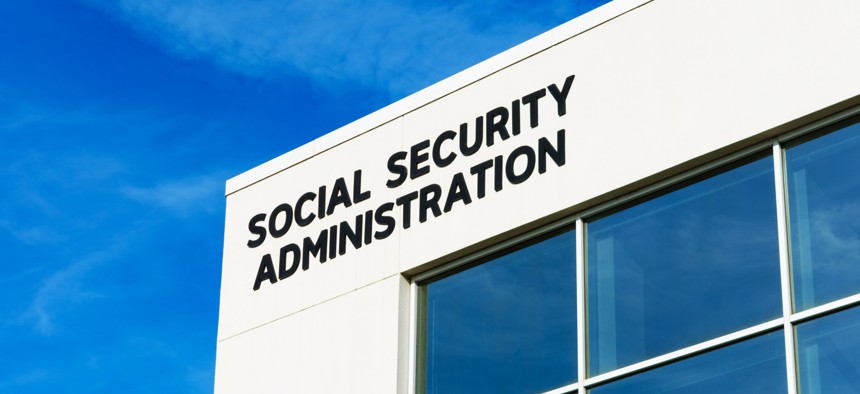
Acting Social Security Commissioner Kilolo Kijakazi emphasized the agency's successes Tuesday as it prepares for its first permanent commissioner in two years. Michael Vi / Getty Images
Acting Social Security chief highlights recent successes ahead of exit
Despite a series of challenges throughout her tenure, Acting Social Security Commissioner Kilolo Kijakazi sought to tout advances made under her watch ahead of the installation of former Maryland Gov. Martin O’Malley following his confirmation Monday.
Acting Social Security Commissioner Kilolo Kijakazi on Monday sought to highlight her embattled agency’s recent progress toward meeting the Social Security Administration’s myriad challenges, as she prepares to hand over the reins to former Maryland Gov. Martin O’Malley, who was confirmed Monday by a 50-11 Senate vote.
Kijakazi joined Social Security in January 2021 after President Biden appointed her deputy commissioner for retirement and disability policy. And when Biden ousted Andrew Saul in July 2021, following months of urging by disability advocates and labor unions, he tapped her to serve as acting commissioner.
But in two and a half years atop the agency, Kijakazi struggled to gain traction in her efforts to address longstanding problems. Faced with insufficient funding despite an ever-growing number of Social Security beneficiaries, the agency’s workforce fell to a 25-year low in 2022, while it is perennially among the worst performers in the annual Federal Employee Viewpoint Survey, an annual nearly government-wide survey measuring federal workers’ engagement and morale.
The agency finally received a $700 million funding increase in fiscal 2023, allowing it to engage in a hiring spree. Though the Social Security Administration hired more than 8,000 people last fiscal year, the net gain in headcount was only 3,200 due to continued high attrition. And Congress’ inability to pass year-long spending legislation in September meant officials could not afford to continue the effort, issuing a hiring freeze.
And in the waning months of Kijakazi’s tenure, a new scandal reared its head: that the agency had issued improper payments amounting to billions of dollars, then tried to recoup overpayments from beneficiaries, many of whom didn’t know they were being overpaid in the first place. Last week, Kijakazi reportedly issued an apology to House lawmakers because she had vastly underestimated the number of impacted beneficiaries in committee testimony.
In a message posted to the agency’s website Monday, Kijakazi acknowledged Social Security’s intractable challenges, noting that the COVID-19 pandemic coupled with the agency’s underfunding “have taken a toll on our employees,” but highlighted a number of initiatives to improve services for beneficiaries.
“Each week, our employees serve over 500,000 people in over 1,000 offices across the country,” she wrote. “Despite insufficient budgets, we have prioritized business, policy and technology improvements to serve you better. For visitors to our local offices, we expanded mobile check-in and instituted an online scheduling system for people who need an appointment for a Social Security card. We also updated our check-in kiosks to make them more accessible and improved the overall check-in process.”
Kijakazi touted the redesign of SSA.gov, completed a year ago, and its expanded “self-service” options that helps obviate the need for some members of the public to schedule appointments at their local field office. Some replacement Social Security Number cards can now be requested entirely online, and the agency recently added a new tool allowing people to sign and submit documents online.
“These improvements allow millions of people to complete their business online quickly and securely, saving time for our customers and freeing up more time for our employees to help customers with more complex needs in person and process more cases,” Kijakazi wrote.
She also highlighted the agency’s work simplifying notice forms, as well as collaborating with other federal agencies to ensure that other safety net programs, such as economic impact payments and the child tax credit don’t impact Americans’ Social Security benefits.
But she stressed that the agency cannot continue to operate without a sustained infusion of cash to build up the workforce and slow attrition.
“Social Security remains a trusted program and agency, one that the public increasingly relies on,” she wrote. “We’ve added at least 8 million more beneficiaries in the past 10 years alone. It’s imperative that we can sustain and support our workforce, improve our customers’ experience, communicate clearly with the public and hone our policies and procedures to provide the service the public expects and deserves. With sufficient and sustained financial support from Congress, Social Security can continue to build on our accomplishments in 2024 and many years to come.”







